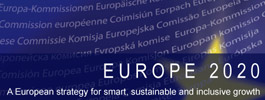by John F. Ryan, European Commission Director for Public Health and Crisis Management

Cross border health threats represent a substantial challenge to both developed and underdeveloped countries. Because of vector spread and the development of rapid transport links across and between continents, all parts of the world can be quickly affected by outbreaks. The potential for severe human health impacts is accompanied by often very substantial societal and economic disruption. As a result, a solid preparedness culture is a good defence, allied to strong core capacities in the form of surveillance systems, reporting, alerting and response mechanisms covering human and animal health. The coordination of national responses in the EU to such threats ensures that measures taken at the national level can be compatible with each other and therefore mutually reinforcing.
Although the risk of a direct transmission of the Zika virus from an Aedes mosquito to a human is minimal in Europe, the EU has been in close contact with the ECDC, Member States authorities, the tourism and transport sectors, the US Centre for Disease Control and Prevention and other relevant international and European health authorities ever since the current Zika outbreak first appeared on the radar in order to help member states to best prepare themselves for this outbreak. On the basis of risk assessments prepared by the ECDC, the EU Health Security Committee has examined the coordinated response to the outbreak as it has developed, and this response is being modified as the outbreak spreads into Asia.
Our ability to react was enhanced three years ago by the passing of Decision 1082/2013/EU on serious cross-border threats to health and the recently launched European Medical Corps to mobilise medical and public health experts inside and outside the EU as part of the Global Health Emergency workforce.
The Commission works to accelerate the implementation of the International Health Regulations and contributes to the work of the World Health Organisation and other groups to strengthen global health preparedness and response to biological and chemical threats, radio-nuclear terrorism and pandemic influenza. Additionally, the Commission's Disaster Risk Management Knowledge Centre aims to boost the EU and Member States resilience to disasters and their capacity to prevent, prepare and respond to emergencies.
The cross border health threats decision also reinforces the coordination of preparedness measures across the EU and allows for regular reporting, identifying where improvements could be made. It introduced the possibility for member states to jointly procure medical countermeasures, a mechanism that is currently being rolled out successfully.
Introducing effective strategies to prevent diseases, such as ensuring high levels of vaccination or preventing antimicrobial resistance, and reinforcing prevention of HIV, Hepatitis and TB are other examples where member states can benefit from working together on common challenges.
To conclude, the importance of prevention and preparedness for communicable diseases and other health threats cannot be overestimated and is a fundamental aspect of protection of citizens and society.







